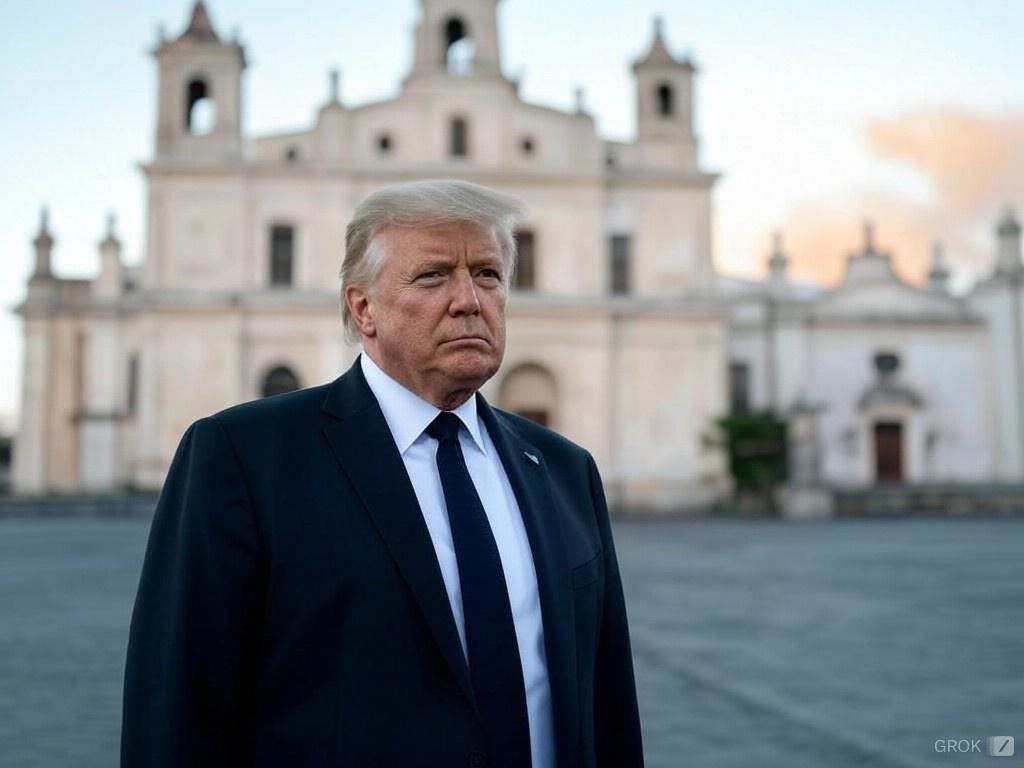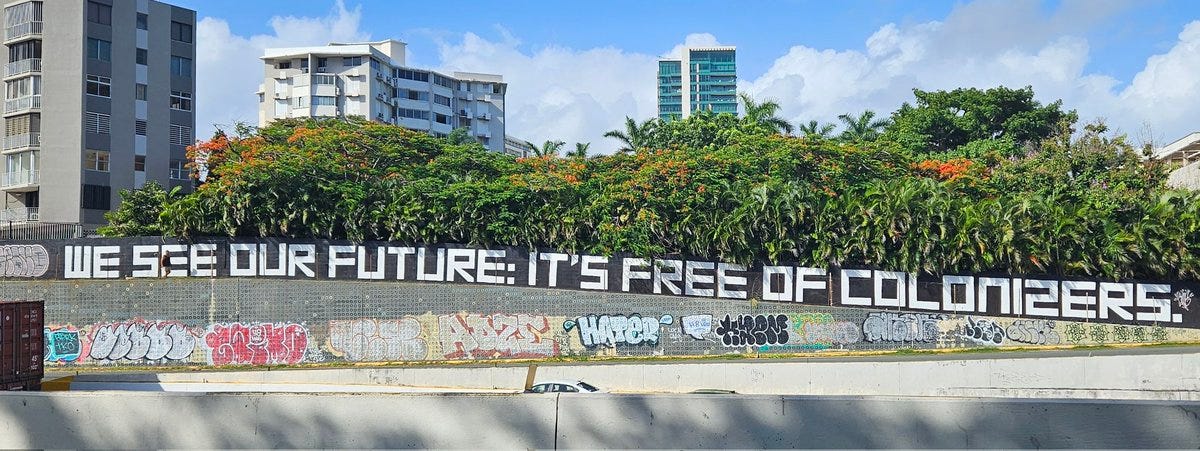How Trump Can Fix Puerto Rico by Ending the Jones Act and Establishing a Free Trade Zone
Revitalizing Puerto Rico: The MAGA Vision to End the Jones Act and Establish a Free Zone
In 1773, American colonists hurled crates of tea into Boston Harbor to protest the heavy hand of British regulation and taxation. Fast forward two and a half centuries, and Puerto Rico finds itself grappling with its own modern version of economic subjugation—not through direct taxation, but through a regulatory regime that echoes colonial mercantilism. Much like the Navigation Acts imposed by Britain, which restricted American colonies to trade exclusively on British ships, the Jones Act mandates Puerto Rico’s reliance on U.S.-flagged vessels, limiting competition and inflating costs to the detriment of its citizens. At the heart of this predicament lies the Jones Act, an antiquated maritime law stifling the economic potential of this strategically vital U.S. territory.
As President-elect Trump readies his second term, he has a historic opportunity to dismantle this regulatory stranglehold and envision Puerto Rico as a thriving free zone, akin to the global success stories of Singapore and Hong Kong. Moreover, such a bold move could forestall calls for Puerto Rican statehood—a potential electoral nightmare for Republicans—by empowering the island with economic independence while maintaining its current territorial status. This dual achievement would affirm both economic freedom and political pragmatism, reinforcing the MAGA agenda’s commitment to America First principles.
The Jones Act: Colonialism by Regulation
Passed in 1920, the Merchant Marine Act—popularly known as the Jones Act—requires all goods transported between U.S. ports to travel on American-built, -owned, and -crewed ships. Like the mercantilist policies of King George III, this protectionist relic burdens consumers with inflated costs while enriching a few vested interests. Puerto Rico, as an island reliant on imports for 85% of its goods, suffers disproportionately under this arrangement. For instance, the cost of importing construction materials skyrockets under the Jones Act, which has a cascading effect on housing affordability and infrastructure development, leaving the island unable to rebuild efficiently after natural disasters like Hurricane Maria. A 2016 study estimated the Act costs Puerto Ricans $1.4 billion annually, with households bearing $692 million of that burden. In practical terms, this translates to an extra $203 per resident per year—a staggering sum for a population whose average income is half that of Mississippi, the poorest U.S. state.
Moreover, the Act’s restrictions exacerbate energy dependence. Puerto Rico imports liquefied natural gas (LNG) from distant nations like Nigeria and Oman instead of the U.S. mainland, a missed opportunity that underscores the inefficiencies imposed by the Jones Act. Addressing these energy inefficiencies could not only lower costs for Puerto Ricans but also align with broader U.S. energy policy goals of maximizing domestic energy use and reducing reliance on foreign imports. due to the lack of Jones Act-compliant vessels. Such inefficiencies inflate energy costs and hinder economic competitiveness, leaving Puerto Ricans paying the price for policies over which they have no congressional representation.
Economic Liberation: Learning from Singapore and Hong Kong
To envision Puerto Rico’s future without the Jones Act, one need look no further than Singapore and Hong Kong. Singapore’s success was driven by policies such as establishing tax-free zones for industries, creating a highly efficient port infrastructure, and investing in workforce training to attract global businesses. Similarly, Hong Kong leveraged its free-market principles by maintaining zero tariffs on imports and exports, streamlining regulatory processes, and fostering a business-friendly legal environment. These strategies demonstrate how Puerto Rico, with its strategic location and untapped potential, could replicate these successes to become an economic linchpin in the Caribbean. Both transformed from colonial outposts to global economic powerhouses by embracing free trade and regulatory minimalism. Singapore’s strategic location enabled it to attract investment through reduced tax burdens, streamlined business processes, and robust infrastructure. Hong Kong’s open economic policies similarly turned it into a nexus of finance and trade.
Puerto Rico, with its strategic position linking the U.S., Latin America, and the Caribbean, is poised to emulate these models. Reimagining the island as a free zone—an economic laboratory unfettered by federal overreach—could attract billions in foreign investment, generate thousands of jobs, and establish Puerto Rico as a pharmaceutical and manufacturing hub. Restoring tax incentives for corporations operating in U.S. territories, combined with deregulation, would reduce reliance on foreign production and bolster national security by reshoring critical industries.
Disaster Preparedness and Strategic Gains
Hurricane Maria in 2017 laid bare Puerto Rico’s vulnerability, with systemic inefficiencies leaving parts of the island without power for months. Transforming Puerto Rico into a hurricane response hub for the Caribbean would turn this liability into an asset. Investments in infrastructure, logistics, and renewable energy—alongside enhancements to law enforcement to combat drug trafficking and organized crime—would secure both economic stability and social order.
The strategic benefits extend to the mainland. A prosperous Puerto Rico would serve as America’s economic counterweight to the failing regimes of Central and South America, projecting stability and U.S. influence in a geopolitically vital region. Enhancing Puerto Rico’s economic independence would also strengthen the broader U.S. economy, demonstrating the power of free markets over the corrupt socialism plaguing much of the Spanish-speaking world.
Challenges and Counterarguments
Critics argue that ending the Jones Act could harm U.S. shipbuilding and maritime jobs. However, such concerns echo the arguments of British loyalists in 1773 who defended imperial tariffs as necessary for the Crown. Economic history has repeatedly shown that freeing markets unleashes innovation and growth that ultimately benefit society at large. Addressing potential disruptions to the maritime industry could involve targeted incentives or transitional policies, ensuring that competition enhances rather than displaces domestic capabilities.
Others caution that Puerto Rico’s political corruption—highlighted by scandals involving governors, legislators, and mayors—poses a barrier to reform. Yet this is precisely why Trump should establish a commission to investigate and root out systemic inefficiencies, restoring public trust and creating a foundation for genuine self-reliance. By coupling economic freedom with accountability, Puerto Rico could emerge not just as an economic success, but as a model of governance reform.
The Trump Doctrine: Making Puerto Rico Great Again
President-elect Trump’s MAGA agenda has always emphasized revitalizing forgotten regions of America, as demonstrated by the success of Opportunity Zones in economically distressed communities during his first term. By incentivizing private investment through tax benefits, these zones created jobs and spurred local development, showcasing how targeted economic policies can yield tangible results. Puerto Rico now stands as the next frontier for such transformative initiatives., and Puerto Rico’s three million U.S. citizens deserve no less. Ending the Jones Act and establishing a free zone would mark a bold departure from the neglect and paternalism of past administrations. The island’s transformation would echo Reagan’s economic revolution of the 1980s, demonstrating that prosperity flows not from government control, but from the ingenuity and determination of free people.
Imagine a future where Puerto Rican ports hum with activity, exporting pharmaceuticals, aerospace components, and renewable energy technologies to markets across the globe. Envision a San Juan whose skyline rivals that of Miami, a testament to the power of American capitalism. Picture a Puerto Rico where the mural along the freeway reads not “WE SEE OUR FUTURE AND IT’S FREE OF COLONIZERS,” but “WE SEE OUR FUTURE AND IT’S FULL OF GREATNESS.”
WE SEE OUR FUTURE AND IT’S FREE OF COLONIZERS
Conclusion
As Thomas Jefferson wrote, “The government closest to the people serves the people best.” For too long, Puerto Rico has been shackled by federal policies that undermine its potential and burden its people. Ending the Jones Act and embracing the principles of economic freedom would not only transform Puerto Rico but reaffirm the ideals of liberty and self-determination that define the American experiment. The opportunity is ripe for President Trump to make history by leading Puerto Rico’s march toward greatness. Let us seize it.
If you don't already please follow @amuse on 𝕏 and subscribe to the Deep Dive podcast.





No, free Puerto Rico.